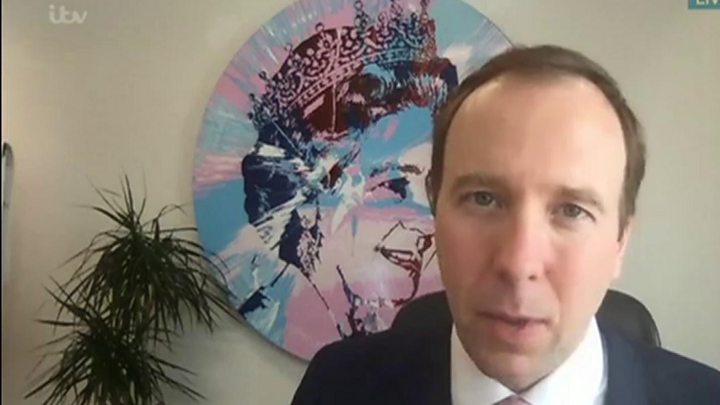A gradual lifting of borders has been proposed by the EU's executive in an attempt to kick-start a tourist industry hit hard by the coronavirus pandemic.
"Our message is we will have a tourist season this summer," said economic affairs commissioner Paolo Gentiloni, "even if it's with security measures and limitations."
Borders closed across the EU, including the border-free Schengen zone.
But states are starting to reopen them.
Austria and Germany have become the latest EU countries to agree to remove travel restrictions.
From Friday there will be random checks at border crossings and then on 15 June free movement should resume. "We want to make people's everyday lives easier and take another step towards more normality," said Chancellor Sebastian Kurz.
UK travellers have already been warned not to expect "lavish" international holidays, with plans for a 14-day quarantine on air arrivals. But travel without quarantine will be possible to France and Ireland.
The scale of the crisis was illustrated by travel giant Tui announcing the loss of up to 8,000 jobs worldwide with plans to cut costs by 30%. The German government has given the company a €1.8bn (£1.6bn; $1.9bn) bridging loan to stay afloat.
- Tui aims to reinvent holidays but 8,000 jobs to go
- Fast on coronavirus, now they need to save summer
What is the EU planning?
The European Commission said its guidance was based on the principles of safety and non-discrimination. Tourism provided almost 10% of Europe's economic output and millions of jobs across the 27 member states relied on it.
Commission Vice-President Margrethe Vestager said no-one should travel if they felt sick or experienced symptoms. She said there were four areas vital to enable the safe return of travel and tourism - travel, borders, health and vouchers.
The non-binding plans involve countries working together to gradually remove travel bans and then border checks, while keeping targeted measures as the Covid-19 outbreak comes under control across the member states.
"Workers and travellers need to know that hotels, restaurants and beaches are safe," said Ms Vestager. She added that the various contact-tracing apps being worked on by European countries to monitor the spread of Covid-19 would have to work across Europe.
Refunds or vouchers for cancelled trips?
One of the big questions for European consumers is what will happen if their trips are cancelled.
Ms Vestager accepted that, while travel companies faced a cash crunch, "European consumers have the right to a cash refund if that's what they want". She said the crunch would be less severe if consumers agreed to take vouchers, so recommendations would be made on how to make that option more attractive.
"Of course this isn't going to be a normal summer but when we all work together... then we don't have to face a completely lost summer," she told reporters.
Getty Images
We don’t get very far if businesses and airlines go out of business and yet lots are feeling intense strain
Among the recommendations:
- Rail and air tickets should be bought and checked in online with physical distancing at security checks
- Food and drink may no longer be on sale on board flights to limit contact
- Fewer passengers should be allowed on board aircraft, buses, trains and ferries and disinfecting gels should be available
- Passengers not from the same household may be seated apart
- All transport staff should have protective equipment, with possible protective barriers for drivers.
Mr Gentiloni said Italy's tourist season had already been badly hit as the first half of main period from March to May had already been lost.
How are different states acting?
The EU is keen to get countries in the EU and the Schengen zone working together, as many are moving at a different pace in lifting their lockdowns.
Some countries have already imposed quarantine measures on travellers. From Friday, arrivals in Spain will have to go into quarantine for 14 days.
The UK, which has left the EU but still operates under its rules this year, plans to impose a 14-day quarantine on arrivals by air. However, it has agreed bilateral travel arrangements with France and Ireland that mean there would be no quarantine involved. Beaches in France's north-western Brittany region began reopening to visitors on Wednesday but under tight restrictions.
England's health secretary, Matt Hancock, said on Tuesday that "big, lavish international holidays" this year were unlikely this year, although some hospitality could resume from July.

Media playback is unsupported on your device
A "Baltic bubble" is set to come into operation on Friday, enabling travel by rail, sea and air across Estonia, Latvia and Lithuania, but with a quarantine initially in place for travellers from other states.
All travellers will have to be free of Covid-19 symptoms and Latvia has urged people to decide whether travel is absolutely necessary.
https://news.google.com/__i/rss/rd/articles/CBMiMGh0dHBzOi8vd3d3LmJiYy5jby51ay9uZXdzL3dvcmxkLWV1cm9wZS01MjY0NDgxNtIBNGh0dHBzOi8vd3d3LmJiYy5jby51ay9uZXdzL2FtcC93b3JsZC1ldXJvcGUtNTI2NDQ4MTY?oc=5
2020-05-13 09:54:12Z
CBMiMGh0dHBzOi8vd3d3LmJiYy5jby51ay9uZXdzL3dvcmxkLWV1cm9wZS01MjY0NDgxNtIBNGh0dHBzOi8vd3d3LmJiYy5jby51ay9uZXdzL2FtcC93b3JsZC1ldXJvcGUtNTI2NDQ4MTY
Tidak ada komentar:
Posting Komentar